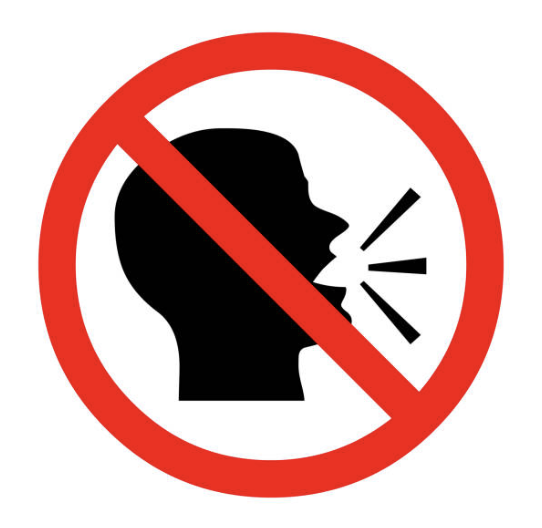Pronounce ‘bottle of water’ right now OP
Edit: I changed the recording a little bit.
Edit 2: I find it funny how I’ve posted my voice a bunch in the past and yet fuckin’ this is what has people messaging me thirsting over my voice. Friendly reminder. I’m gay. And now scared.
OMFG this is amazing

Now it’s the last one because I really do have to go.
This is a top class response 👏
Don’t worry, I’m done now lol
😂 Absolutely zero rage here. This genuinely brightened my day! You have a fantastic voice!
Hey, one of us has to have a good day, right?
Thanks <3
Your voice and speech cadence are genuinely GOD TIER. I swear to god people would pay money to get narrated by a voice HALF as good as yours! Take pride in that
I swear to god people would pay money to get narrated by a voice HALF as good as yours!
Who’s to say people don’t?
I just wish more people did.
I’m fucking hungry.
But thank you <3

Holy shit lmfao
You know, for as much as I post I don’t think people have realized they can just straight up summon me yet to do stupid things.
I am just a goof.
“Hey! Wait a second! You’re that guy who does whatever people ask him to do, right!? …Well then, go find my boyfriend!”
“Hey! People usually ask nicely!”
- Nier (the first one)
Honestly how it feels sometimes lmao if people ask nice then I’ll do a lot of random shit. I like making people happy. If you’re a dick? I grew up an island where the weather itself tries to murder you. Spite is what powers my entire being.
Lmao. Well done.
Thank you very much. And to you for managing to score that username. I thought me getting just a first name as my main account was good but damn.
Thanks! I was very early on the Reddit APIpocolypse exodus, haha.
Same lol my main account hits the 2 year mark like 2 weeks after lemmy.world’s two year anniversary
This is modern art
Pastry Pete, is that you?
… Who? Also I just re-recorded it with more to it. Does that make it better or worse lol
I don’t even like podcasts, but where do I subscribe to your’s??
I don’t have the patience or a blood sugar for a podcast. Too much effort. And I don’t even know what I’d talk about…
I want this as the voice on my GPS

!You can post media in comments by formatting them like this
!<Sweet thanks


o… of what?!
You’re gay and canadian? Notice me, senpai!
>.>
<.<
You did drop the t to a glottal stop in your last glass of water, though, just saying! :P
I am indeed gay and I am indeed Canadian. Newfie specifically. I just suppress the fuck out of my accent.
Also it does sound like a glottal stop in the last one but only if the volume is lower. If you increase the volume a bit you’ll hear the T. I had to check for myself to be honest. Was listening to it quietly at the stop and “WAIT WAIT WAIT” before turning the volume up and “Ah okay.”
Damnit! My secret-keeping low volume speakers have foiled me again!
You have my deepest sympathies.
bo’o ‘o’ wa’a
Get up, come on, get down with the sickness!
I just laughed so hard that I scared the cat. I did not expect that. Fucking hell lmfao
Don’t you mean “boddul of warder”?
Platinium
Goldium
Silverium
Leadium
The latin names had -um suffixes
- Gold - Aurum
- Silver - Argentum
- Lead - Plumbum
also:
- Copper - Cuprum
- Iron - Ferrum
Aluminum already has an -um suffix so there’s no need to change it
So did it’s predecessor name: Alum
Al-Um
Platinium sounds so much better than platinum
Molybdenium
Mercuryium
Motherload moment
Your mother took my load lmao
The only ones they teach you about in the US, huh? And also not about their latin names apparently.
Aluminum was the original name, YOU GUYS HAD TO GO AND CHANGE IT
Just like soccer.
Look the language is ours now england, you lost the right.
Ya will Trump is going to rename it to Amerinum now.
check out number 95
No, it’s Aluminum of America.
i thought the original name was alumium?
Alumina ore was smelted/refined to isolate the pure metal.
Using the preexisting naming convention that ore->metal goes a->um, the discoverer of the element named it Aluminum.
Later, British chemists got mad that their US naming standard was different from their own standard.
no.
the discoverer, humphry davy, was english. the name is originally the english “alum” and the latin “ium”, which was criticized because names were traditionally constructed from latin roots. european scientists suggested “aluminium”, for “element created from alum”, but the year after that, when davy published a chemistry book, he spelled it “aluminum”. this took hold in britain, but the rest of europe used “aluminium” so they standardized.
a few years later, when the word first appeared in an american dictionary, only the “num” spelling was added. scientists kept using “-ium” but the general populace went on the dictionary definition until it won out. the “american” spelling was only accepted by american scientists about 110 years after the element was discovered.
So the guy who discovered it published a book and named his discovery in his book “aluminum”?
Well case closed. It’s aluminum.
and then scientific consensus made him change it. there was a clique of, quote, “patriotic” englishmen who, worried about “foreign influences”, kept using the misspelling, but they were very few and very much gone by the time the americans changed their minds.
Wait, so the original name is alumium? Fuck yeah! From now on I’ll go with that one!
Stuff does occasionally change
In like… Science
Yes, but when naming new things you typically go with… you know… the person that discovered and named it
Well they should have called it Ørstedium then, and people could refuse to call it that because nobody knows what Ø sounds like or how to type it.
it’s simple! it’s like the i in stir, or the e in germ, or the u in turn, or the a in earth.
It actually would be a way cooler name for the element.
No, it’s was Alumium originally. So you guys changed it too, but decided to chsbge it to something worse.
We say it the original correct way in the US. Other countries changed it for some reason. The guy that discovered it in 1808, Sir Humphrey Davy named it “Alumium” which based on Alumen (Latin for bitter salt)but quickly changed it to “Aluminum”. I swear I remember reading that he kept getting shit on by the science community and his friends for naming a metal “bitter salt” in Latin … but can’t find a reference.
His colleagues in Britain did mess with him and start using the name “Aluminium” … exactly because it ended in “ium” like ALL the other elements (Oxygenium, Carbonium, Ironium, Zincium, Nitrogenium, and the like). They US just kept the name the discoverer wanted instead of giving into those British asshats that just wanted to troll Sir Davy.
He also isolated Magnesium and named it “magnium”, but later changed to magnesium. The guy just couldnt settle on names. Again, in my version of reality it is because his friends kept giving him shit.
They US just kept the name the discoverer wanted instead of giving into those British asshats that just wanted to troll Sir Davy.
It probably wasnt really a willful defiance thing. It’s likely more correct to say that we kept the name because by the time they changed it officially in Europe, we had millions of students across the country that had textbooks with the name Aluminum in it, that had already been taught the original name, and if the inconsistentcy was even important enought to consider “correcting”, it was likely deemed too costly and too much of a headache to change at the time. By the time people were buying reprints/new editions/more recently written textbooks anyway, professional chemists in the US had been calling it Aluminum for years. Given how isolated we were from Europe in the early 1800s, there was very little pressure to align with them on it, and so it stayed. The longer it stayed the more likely it was to be permanent, and here we are.
But yeah, Sir Humphrey Davy was an indecisive wishy-washy namer of elements, disseminated multiple names across the world, but somehow that is our fault when we just stuck with the one we were given and everyone else changed over nitpicky conventions. It’s not the only thing that Brits shit on about American English that is entirely their invention or their mistake:
-
“Soccer” being a British term short for “Association Football”
-
The season “Fall” being a British term shortened from the phrase “The Fall of the Leaf” and directly complementary to “Spring” which comes from the phrase “The Spring of the Leaf”, which they still use despite making fun of Americans for “Fall” instead of their “Autumn”, which Americans also use.
-
“Dove” instead of “dived”, “pled” instead of “pleaded”, “have gotten” instead of “have got”, etc. all started in Britain but were dropped there and stayed in the US.
-
“Herb” being pronounced with an audible “h”. The word is borrowed from French, where the h is silent, exactly like , “honorary”, and “honesty”. Neither country pronounces either of those words with an “h” sound, but that doesnt stop people like Eddie Izzard shitting on how Americans say it with a silent “h” despite the American pronunciation being, arguably, more correct given the word’s origins.
Side note, it is crazy how many words in English are borrowed from French, even if they are horribly mangled and unrecognizable now in a lot of cases. The British Aristocracy really had their noses shoved firmly up French asses for a lot of their history in the last few centuries.
I suspect that if the US had adopted the name “Aluminium” Britain would have changed it again and they would be making fun of us for not calling it “Aluminiumium”.
I think Americans vastly overestimate how much Brits care about spiting them. If anything it would be more likely for the Americans to change the name to be different from the Brits.
I think you’ll enjoy this: Silent Letter Day.
-
We say it the original correct way in the US
.
Sir Humphrey Davy named it “Alumium”
I explained the whole naming process. You gotta read it. The US was given the name as Aluminum and did not change it when the British changed it a third time.
But aluminum is nit the original name and you explain that. It’s also not the correct way either.
Welcome to ignore. Everyone else understood the discussion … you are the outlier.
Dude, seriously — say the words in your head as you read them.
Alumium is the original name. You can’t explicity say that and then also argue that Aluminum is the original. It’s a direct contradiction.
‘This just in, new evidence suggests that Tolkien’s working title for ‘The Lord of the Rings’ was ‘Guy With Rings Wants to Conquer the World’. According to gmtom - this is what we should call ‘The Lord of the Rings’ from now on, because it’s the original name.’
Edit: stop
Strawman argument. I’m litterally just saying that you can’t argue in favour of aluminum by saying its the original name, when aluminum is the original. It’s not even about which name is “”“correct”“” it’s just about using factually information.
The only reason it’s called ‘Aluminum’ in the US is that name was popularised in the Webster’s dictionary in the US firstly, and then Hall who preferred the less common ‘Aluminum’ spelling for marketing his new Aluminium refining process as he thought it sounded fancy like Platinum. Prior to that it was more widely called ‘Aluminium’ in the US as well as the rest of the world - as it was the dominant name scientifically, and nobody else used it much as it wasn’t widely commercially used until the late 19th century / early 20th century.
This is all on Wikipedia, dunno why people feel the need to make up their own stories every single time this comes up, but it does make us laugh.
From the Wikipedia page you linked;
Davy suggested the metal be named alumium in 1808[30] and aluminum in 1812, thus producing the modern name.[29] Other scientists used the spelling aluminium
The name Aluminium never caught on in the US. It appeared in a few books and was in a dictionary, but so we’re words like Soop (for Soup) and greef (for grief). These did not catch on, Americans just kept using Aluminum. Webster wanted to standardize words … but nobody wanted to use dawter instead of daughter. They did stop using “Gaol” and used Jail instead.
The word history was “alumium” in 1807, then changed to “aluminum” in 1808. It was not changed to “aluminium” until 1812
Edited my comment for more clarity. But the etymology of the spelling is all in the Wikipedia article if you’d just read that small ‘spelling’ section instead of stopping when you feel you’ve read something that backs your point. It was 100% driven by American marketers, not “Brits changing their minds”, and yes ‘Aluminium’ most certainly had ‘caught on in the US’ and was the most popular spelling. Read Wikipedia - it cites sources in the form of several reputable books covering this history.
[…] in 1892, Hall used the Aluminum spelling in his advertising handbill for his new electrolytic method of producing the metal, despite his constant use of the Aluminium spelling in all the patents he filed between 1886 and 1903. It is unknown whether this spelling was introduced by mistake or intentionally, but Hall preferred aluminum since its introduction because it resembled platinum, the name of a prestigious metal.[141] By 1890, both spellings had been common in the United States, the -ium spelling being slightly more common; by 1895, the situation had reversed; by 1900, aluminum had become twice as common as aluminium; in the next decade, the -um spelling dominated American usage. In 1925, the American Chemical Society adopted this spelling.[135]
It is what it is. The US did not accept the THIRD name change. No one really knew about the first name. Aluminium appeared in the fucking dictionary … but the US population ignored it and stayed with the second name.
Wikipedia is just citing old books … the same old books people disregarded when they refused to use the new weird name.
Webster was an idiot and was trying to change hundreds of words and the population just wasn’t having it. “Soop” instead of “Soup” was literally forced on the public, Aluminium, Dawter … do we use those? No.
Wikipedia is simply wrong. Both spellings were never equally used. Even your post confirms this, the dudes patent said “Aluminium”, but he used Aluminum instead because he liked it. This is how it was everywhere.
Ahh yes, Wikipedia is wrong, books on aluminium and scientific naming are also wrong, evidence…? trust me bro. Once again you keep the parts from Wikipedia you like, but discard facts counter to your point.
What’s the point in engaging further, we’ve reached peak comedy. 👌
Agreed. I have said people ignored the books and dictionary entries, the word Aluminium and MANY others never caught on. You just keep pointing to those books.
The US literally “noped” out of the word Aluminium and refused to use it. If Im wrong, then why arent we saying it today?
If you hate Americans because of this, of all things, then you’re going to lose your mind when you find out about everything that’s happened this year.
Or the last 200 years.
Platinum
Platinium!
Am I the only one who finds differences in american vs british english cool, instead of a reason to be a dick
Let’s table that discussion.
Tap for spoiler
The meanings of “table” as a verb in US vs UK parliamentary usage are literally opposites. With the US meaning being to stop discussing or put aside for later, while the UK version means to begin discussing.
This actually caused confusion during allied meetings in WWII.
Oxygen-ium

I expected Walter in the meme.
Didnt excpect the element symbol in the gif
No notes
LMAO
Substance discovered by folks that called it alum or aluminum for literally five centuries then the Brits come galloping in to colonize the accepted name then try to look down on everyone else
Then they stole all their ancient artefacts to put in their own museums.
Cool narrative you got there mate, problem is while the term “alum” was used for (far more than) 5 centuries, the words “aluminium” and “aluminium” were both coined around the same time, roughly 1810ish. Also, Sir. Davy, who coined the phrase that you hold dear, was British.
Tldr: every part of that statement is wrong
It is really weird how you agreed with me and yet still said I was wrong.
Yeah, sarcasm mate
We canadians also say Aluminum and I would like to be represented in this comic as a target of mockery alongside the US thank you.
Aluminium is not the -ium of alumin
Aluminium is the genericitation of aluminum.
The actual -ium is of alum. The original name is alumium.
Aluminum is a modification of alumiun, not aluminium
You could be right.
However. It’s the internet and I can’t read
Aluminuminium. Now everyone gets to be happy.
Sorry, I’m siding with my American compatriots on this one. Yours sounds silly.
“Aluminium” sounds like something a fantasy writer would call aluminum in their novel just to make it sound magical.
It confused me a bit when reading the Mistborn series. Wtf is aluminum and why have i never heard of that? Do they just call Aluminium differently because of story reasons? Did i miss something? Are the other metals correct?
Good books tho
Aluminum is the original name for the element. It was changed to be more in line with the others in its group.
Like in the tv shows when they say “epinephrine”, and I was like wtf is that? for years.
And later on with the amazing metal called tungsten. Why have I never heard of it?
(Its andrenaline and wolfram)
Acetaminophen / Paracetamol is probably the one I see the most.
Wait until you learn why it’s called epinephrine. Then you’ll really roll your eyes.
I know… And I did. I mean it’s called the andrenal gland! How did they even allow it?
Bendalloy is a commercial name, which is for the best because we’d hate for Wayne to burn Wood’s metal
Always find it funny how the French and British traditionally hate on each other but the British will defend to the death the stupid French shit we stole for our language
the amount of times I’ve seen people get pissed off at the American English removal of the useless “u” is actually fucking silly
The English ‘stole’ words from the French in the same way half the European world ‘stole’ Roman roads, words, and customs.
They were colonised by the Normans you silly codswallop. The British retain French words because they were forced on them by the aristocracy a thousand years ago.
I remember the battle of Hastings like it was yesterday.
It’s even sillier when you realize (hah!) that -or came from Latin, and -our came from Old French, and both had been used interchangeably in English for at least a century when Samuel Johnson decided to use -our in his dictionary, and Noah Webster decided to use -or. So Britons and Yankees are equally (in)correct.
I mean we hate on the french, but it’s mostly good natured ribbing. Also wasn’t most of the french imposed on us post invasion rather than stealing?

























